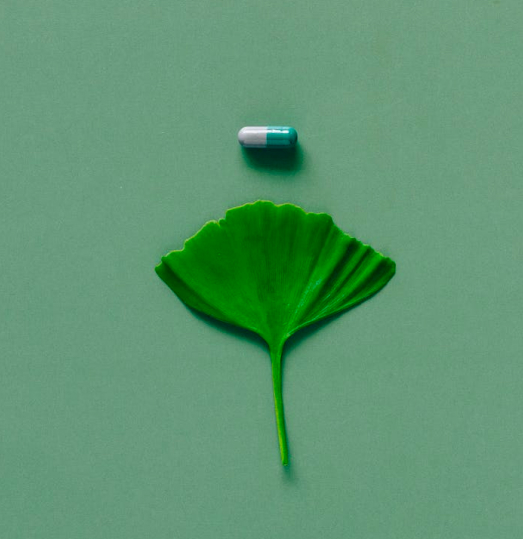
Robin Berzin, M.D.’s
Leaky Gut Support
Protocol overview
Last updated: May 13, 2025
5 Nutrients
L-Glutamine
3g
L-Glutamine is an essential amino acid that serves as a primary fuel source for the cells lining the intestines. It helps repair and maintain the gut barrier, reducing intestinal permeability and promoting tight junction integrity. [1]
See how your current
nutrient totals stack up
Log in or sign upColostrum
2500mg
Colostrum contains immunoglobulins that support the immune system and help heal the mucosal lining of the intestines. It is particularly effective in rebuilding the gut barrier and reducing intestinal permeability. Target at least 1 gram of immunoglobulins from your total colostrum intake. [2]
Akkermansia
100million AFU
Akkermansia is a beneficial probiotic strain known for its role in maintaining a healthy gut barrier. It aids in the balance the gut microbiome and supports the integrity of the intestinal lining. [3]
Short-Chain Fatty Acid
575mg
Short-chain fatty acids (SCFAs) are beneficial compounds produced when healthy gut bacteria break down certain types of fiber. Butyric acid is a short-chain fatty acid that supports the health of the intestinal lining. It plays a role in maintaining the integrity of the gut barrier, reducing inflammation, and promoting a healthy immune response in the intestines. [4]
Vitamin E
600mg
Vitamin E is fat-soluble antioxidant that protects the cells of the digestive tract from oxidative stress. It supports and protects a healthy gut barrier by reducing inflammation and aiding in cell repair. [5]

Make Sense of Supplements
SuppCo is the world’s first app for building your Supplement Stack and meeting real health goals with Expert Protocols.
Download the appProducts
SuppCo does not participate in supplement affiliate programs. The links below are provided solely for your convenience.
Warnings
DO NOT TAKE WITH
Antibiotics without consulting a healthcare provider due to potential interactions with probiotics. Avoid taking L-Glutamine if you have cancer or high doses of L-Glutamine if you have liver or kidney disease without medical advice.
DO NOT TAKE IF
You are pregnant, breastfeeding, or have a known allergy to any of the components in this protocol. Consult with a healthcare provider if you have any pre-existing medical conditions, particularly autoimmune disorders.
Lifestyle Improvements
Most people don’t realize how much their gut health impacts everything from bloating and fatigue to anxiety, brain fog, and autoimmunity. The truth? A healthy gut isn’t just about avoiding digestive symptoms, it’s the foundation of your immune system, mood, energy, and inflammation levels. If you want to heal your gut and feel like yourself again, it starts with how you live every day. Here’s how:
Eat to Reduce Inflammation and Restore the Gut Lining
Your food is either fueling inflammation or helping you heal. Prioritize whole, anti-inflammatory foods: organic vegetables, lean protein, healthy fats, and low-glycemic fruits. Cut out gluten, dairy, refined sugar, alcohol, and highly processed snacks that can damage the gut lining and disrupt the microbiome. If you’re dealing with IBS or SIBO symptoms, explore a low FODMAP approach temporarily. And hydrate, aim for at least 8 cups of filtered water daily to support digestion and detox pathways.
Move But Don’t Overdo It
Regular movement supports circulation, lymphatic flow, and digestion. Aim for 30 minutes a day of walking, yoga, or light strength training. Avoid overexertion, too much high-intensity exercise, can raise cortisol and worsen gut inflammation.
Prioritize Deep, Restful Sleep
Your gut heals while you sleep. Poor sleep increases gut permeability and inflammatory markers. Stick to a consistent sleep schedule, power down electronics an hour before bed, and create a calming nighttime routine. Magnesium glycinate or chamomile tea can support deeper rest.
Manage Stress Like Your Gut Depends on It—Because It Does
Chronic stress is a major driver of leaky gut. Even five minutes a day of deep breathing, meditation, or journaling can calm your nervous system and lower cortisol. Try guided breathwork, restorative yoga, or spending time in nature to reset your stress response.
Test, Don’t Guess
At Parsley, we always say: if you’re tired of guessing, test. Get a comprehensive gut health panel and blood work to identify nutrient deficiencies (like zinc, vitamin D, or B12), inflammation markers, and food sensitivities. Personalizing your protocol leads to faster, longer-lasting results.
When you pair lifestyle with smart supplementation, your gut can heal and your whole body can thrive.
Disclaimer
These statements have not been evaluated by the Food and Drug Administration. Any products and informational content displayed on this page are not intended to diagnose, treat, cure, or prevent any disease.
While this Protocol has been created by health experts, it is educational in nature and not a substitute for personalized medical advice. Always consult with your healthcare provider before starting any new supplement regimen, especially if you have underlying health conditions or take medications.
- Abbasi, F., Haghighat Lari, M. M., Khosravi, G. R., et al. (2024). A systematic review and meta-analysis of clinical trials on the effects of glutamine supplementation on gut permeability in adults. Amino Acids, 56(1), 60. https://doi.org/10.1007/s00726-024-03420-7
- Dziewiecka, H., Buttar, H. S., Kasperska, A., Ostapiuk-Karolczuk, J., Domagalska, M., Cichoń, J., & Skarpańska-Stejnborn, A. (2022). A systematic review of the influence of bovine colostrum supplementation on leaky gut syndrome in athletes: Diagnostic biomarkers and future directions. Nutrients, 14(12), 2512. https://doi.org/10.3390/nu14122512
- Mo, C., Lou, X., Xue, J., et al. (2024). The influence of Akkermansia muciniphila on intestinal barrier function. Gut Pathogens, 16, 41. https://doi.org/10.1186/s13099-024-00635-7
- Recharla, N., Geesala, R., & Shi, X. Z. (2023). Gut microbial metabolite butyrate and its therapeutic role in inflammatory bowel disease: A literature review. Nutrients, 15(10), 2275. https://doi.org/10.3390/nu15102275
- Gothandapani, D., & Makpol, S. (2023). Effects of vitamin E on the gut microbiome in ageing and its relationship with age-related diseases: A review of the current literature. International Journal of Molecular Sciences, 24(19), 14667. https://doi.org/10.3390/ijms241914667
